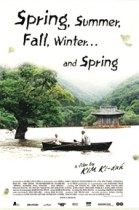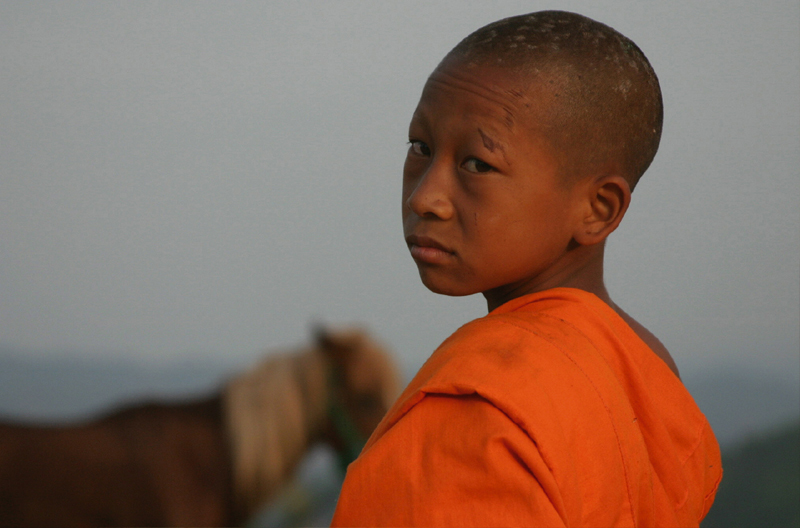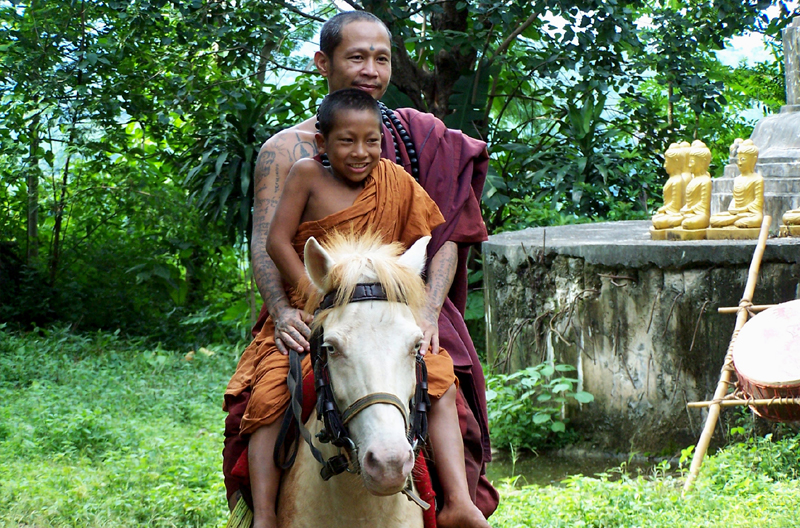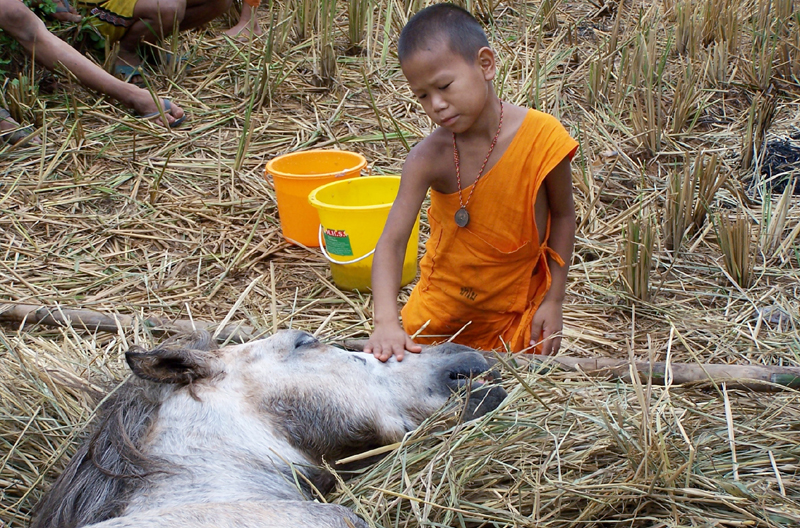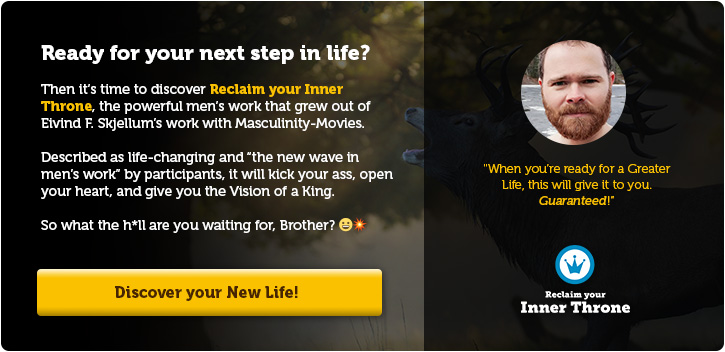Buddha’s Lost Children (2006)
Synopsis
This documentary is a portrait of Buddhist abbot Phra Khru Bah and his life with his young novices. From his home base Golden Horse Monastery, the former kickboxer travels the hill tribe villages under his care in the drug-infested Golden Triangle, dispensing buddhadharma and his own brand of tough love. On his travels, malnourished and troubled village boys with no future enter his fold and become resourceful and self-confident young men. This is a beautiful and intimate portrait of one man’s calling to transform tormented boys into men who serve the world.
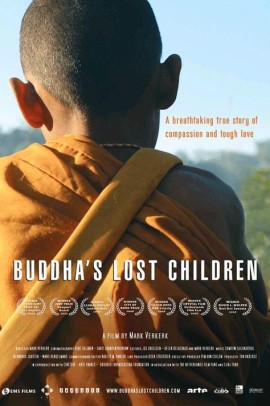
| Genre | Drama |
| Production year | 2006 |
| Director | Mark Verkerk |
| Male actors | Phra Khru Bah (as himself) |
A study in compassion and tough love
by Eivind Figenschau Skjellum
By user request
Suk
In order to make his movie Buddha’s Lost Children, director Mark Verkerk spent an entire year with Abbott Phra Khru Bah and his novices. In the beginning of that year, Suk was already there, the orphaned kid who used to only speak with dogs. Khun Mae Ead is the nun who takes care of the day-to-day practicalities in and around Golden Horse, and she tells us how when Suk first arrived, he would just sit and stare – without saying a word – at Khru Bah. Khru Bah in turn would just keep on speaking to him, trying to open him up with his love and attention.
It worked.
Suk is now a smiling and resourceful young boy, adept in the arts of conversation, meditation, reading, horseback riding and kick boxing. He has flourished under Khru Bah’s loving care. Khru Bah’s love is not, as he describes it, “weak love”. This is quite evident from the opening scene in which he teaches his novices kick boxing.
What he offers is tough love, he tells Tookae and Pabo, two novices who keep fighting amongst each other. “If we love a child,” he says, “we want him to be strong. There’s a saying that goes, if you want to love a child, you have to be firm.” Khru Bah’s firm love has touched Suk deeply. He speaks again and his smile is wide and beautiful.
Yee/Pan Saen
Yee arrives in the group when Khru Bah is en route to the most distant village under his care to rebuild their decrepit communal temple. He is a simple kid, with low intelligence and few skills. “He is not quite right. He fell down from a tree when he was little,” says his mother. From the get go, Khru Bah places demands and expectations on his little head while bathing him in his paternal love. It is a new world for the mama’s boy, but he takes to it quickly.
Khru Bah won’t allow his boys to just muddle along. He won’t let them piss around and be useless with their time. This is in stark contrast to how many kids are raised in today’s world, where kids systematically rebel and fight their parent’s authority, and the parents let them get away with it. But were you to ask Khru Bah, he would likely say that that has nothing to do with love, as it is exactly the kind of behaviour he won’t allow. Whenever the boys overstep a boundary, they are forced to stand responsible to the voice of authority, be it Khru Bah’s or Khun Mae Ead’s.
When the troupe draped in maroon reaches their destination in the border region, the villagers help them tear down the old temple in a matter of hours. A conflict breaks out among some of the village youths and Khru Bah gets very angry. “What’s your problem?” he shouts as he marches fiercely towards one of the trouble-makers. He grabs him by the neck, wrestles with him, knees him in the belly and forces him to the ground. This peaceful, smiling monk used to be a kickboxer, who lost only four of the hundreds of matches he participated in.
He is not the soft, loving sap that some might expect a Buddhist monk to be. So refreshing! “If you’re not happy, then say so,” he barks at the surprised and surrendered young man. “Don’t just have an attitude!” He is furious, but the undercurrent of love is palpable. Khun Mae steps in with total intensity and forces the group to collectively stand responsible for the danger they put themselves and everyone in, admonishing them to live like men and not like dogs. The regret in their eyes is genuine.
Yee, now Pae Saen (his dharma name), looks on with concern. His new “parents” are no mere sissies. The stakes have been upped in his life, and he looks all the better for it.
Boontam
Boontam is a malnourished village kid with weak legs. Khru Bah wants to take him under his wings and make him healthy again. The little guy is only four, but has lion courage, already ready to leave his family to go stay with the man with the long robe, the huge wooden mala, and the big smile.
“I have prayed that a Buddha be born here to help spread the word along the border,” Khru Bah tells us with gentle hope in his voice. “It hasn’t been very long since then, but I’m pretty sure it’s him. We have to be patient, he’s just four years old. We will have to wait…”
It is with the thought of Boontam as the future bodhisattva of the Golden Triangle that I leave him, Phra Khru Bah, Khun Mae Ead, Suk and Pae Saen behind, thankful for the short and intimate time I have spent with them.
Where to get it?
You can watch Buddha’s Lost Children on Youtube or you can buy the movie from the website. I recommend the latter as the revenue goes directly to support Khru Bah’s work.
Powerful ideas from Buddha’s Lost Children
- Boys don't flourish under weak love from soft saps who allow them total freedom. They flourish when they are treated as men, given the responsibilities of men, and expected to behave like men.
- Loving someone does not mean that you sit back and let them do whatever they want with their lives. Love is a proactive attitude that sometimes requires forceful intervention.
- When accidents happen (the horse that falls ill on the journey), there is a hidden seed of learning to be found within. Find it and use it for good effect.
- If you keep living your life as you are, will you know peace of mind on your death bed?
- True service makes you fearless.
- A disturbed child will, unless met with love, respect and demands, become a disturbed adult.
- Hitting someone can be an act of love.
- Peace of mind and heart are ultimate priorities

